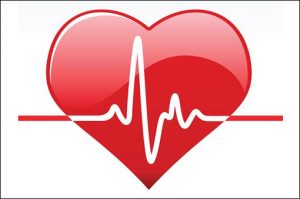 What is a good night’s sleep?
What is a good night’s sleep?
The answer might surprise you. Seven hours of sleep is plenty for most people. Much more than that isn’t good for you. In fact, people who regularly sleep more than eight hours a night tend to die sooner. A bit less won’t hurt you. But less than five hours’ sleep, night after night, takes a toll.
Sleeping late once in a while won’t hurt. Neither will getting too little sleep every so often. But don’t make a habit of it. Sleeping well is as important to your health as eating well.
Top 10 Trans Fat Foods
Confused about trans fats and how to find them? Some products now say, “No trans fats” but until labeling is more widespread, here is a list of the top 10 foods containing trans fats.
1. Spreads — margarine, shortening, and butter
2. Packaged foods — cake mixes, biscuit mixes, etc.
3. Soups
4. Fast food
5. Frozen food — dessert pies, pot pies, waffles, pizzas, breaded fish sticks, etc.
6. Baked goods — doughnuts, cookies, and cakes
7. Chips and crackers
8. Breakfast foods (Some breakfast cereal and energy bars contain trans fats)
9. Cookies and candy
10. Toppings and dips — Nondairy creamers and flavored coffees, whipped toppings, bean dips, gravy mixes, and salad dressings
The Prime-Time Workout
Couch potatoes, it’s time to tune in and tone up. That 30-minute sitcom you love has about 10 minutes’ worth of commercials. Instead of reaching for cookies or chips, get moving! Push-ups, chair squats, marching in place, and jumping jacks work great in front of the tube. These little bits of exercise — strung together — add up to energy burned!
Working Out the Blues
Moderate exercise — 30 minutes walking or running, a few times weekly — increases mood-lifting brain chemicals. Exercise spurs the body to create natural stimulants, causing the euphoric “runners’ high.” In fact, playing sports or just being active can help adults and teens avoid both depression and obesity. If your doctor approves an exercise program for you, go for it!
Breast Cancer in the Family?
Screen Early Most women don’t need annual mammograms until they’re 40. But having a family history of breast cancer may mean you need to get started earlier. Go ahead and talk to your doctor if:
•Your mother, sister, or daughter has had breast cancer — this doubles your risk.
•You have had two first-degree relatives with breast cancer — this means a fivefold higher risk.
•You have had a relative with breast cancer before 40 years of age.
The Top 10 Great Life Skills To Have, To Use, And To Improve
It takes a lot of skills to negotiate through life. Many of them we pick up along the way, others we need to develop, and some we just need to polish a little bit. Here are a few life skills to consider getting, using, or practicing in your life…
1. Listening
2. Giving compliments
3. Accepting compliments
4. Thinking positive
5. Saying “No”
6. Laughing
7. Planning
8. Asking questions
9. Reading
10. Exercising
Heads Up for healthier brains
Here are four simple things that you can do at any age to improve your brain health and that may help reduce your risk for Alzheimer’s disease:
• Challange your brain – give it a daily workout
• Be socially active – connecting socially helps you stay connected mentally
• Choose a healthy lifestyle – be active, eat well and watch your health numbers (cholesterol, weight, blood sugar, blood pressure)
• Protect your head – use a seatbelt and wear a helmet for sports.
Take action for a healthier brain today!
The Local 2351 Mission: To work as a team to improve the lives of our members and their families.
HEAD OFFICE
P.O. Box 235
Churchill Falls, NL
A0R 1A0, CANADA
(709) 925-3963